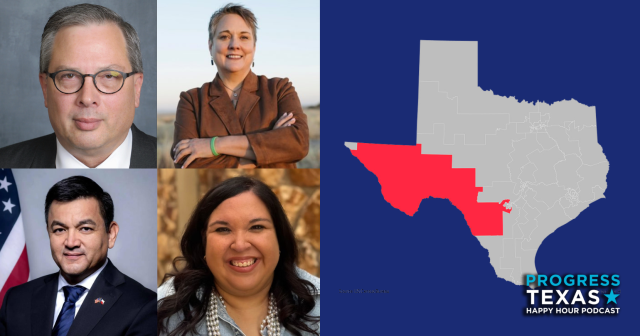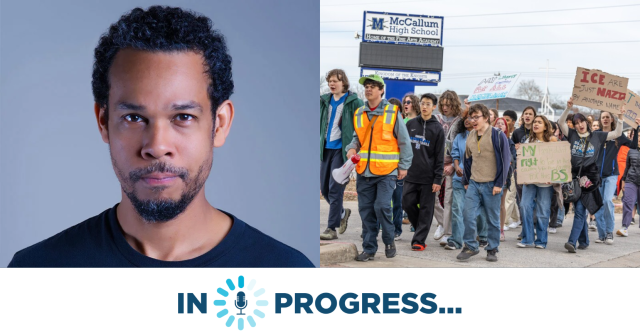Unconstitutional Abortion Bans on Interstate Highway Travel Meet Resistance

Toplines & Key Facts
- Abortion bans are being proposed in Texas cities and counties
- Some towns are resisting
- Policy enforcement implausible, and meant to intimidate
- Federal intervention necessary to restore our abortion rights
Abortion travel bans proposed in Texas counties
Texas is not a state known for easy travel, nor access to abortion. These statuses collided in past months, with areas in the Lone Star State targeted for their prime access to interstate highways.
To put it plainly, anti-abortion activists organized around unrealistic ordinances that would impose private lawsuits and penalties on interstate travel for anyone who knowingly transports Texans seeking abortions. They have mobilized in conservative regions along the border, and highway concentrations of Texas, primarily Lubbock, Odessa, and Northeast Texas. Cochran County, which borders New Mexico, unanimously greenlit the measure in September.
One man at the forefront, Mark Lee Dickson, has continuously and menacingly been behind the scenes of these town debates. This director of Right to Life of East Texas collaborated with former Texas solicitor general Jonathan Mitchell in 2019. Since then, they have visited and motivated conservative communities with propositions to condemn what they call, “abortion- trafficking.”
Resistance to the Bans
After two cities passed similar bans, Llano was targeted with fear-mongering about murderous cartels after pregnant women of Central Texas.
Llano was the exception to his previous marks because as he stated, it sits in the center of Texas. It has crucial highway intersections, with Interstate 20 and Route 84 that lead to New Mexico. Council members tabled the motion to pass the ordinance. Officials cited concerns about harm to the community and its impractical enforcement. Councilwoman Almond, one of four out of five members who voted to table, was particularly worried about “how [it] could pit neighbor against neighbor.”
Rightly so, these ordinances infringe on the right to privacy, and to travel freely. You have to ask how to distinguish which car over another on the highway is seeking an abortion. Are they going to pull people over for unwanted pregnancy tests? What about vendettas? And that is the question because this policy is designed to go after abortion funds, organizations that give financial assistance to people seeking abortions, as well as individuals.
Anxieties were shared in other targeted councils too. In Mitchell County, where the measure passed unanimously, a commissioner called the bill “unenforceable,” in its implementation because of the scope involved. Additionally, a Chandler council member called it a “mistake” before agreeing to push the vote. This sentiment isn’t stopping Dickson, who “drove 40 minutes to Mason, Tex. to try to convince another small, conservative community to pass the same law.”
Their enforcement mechanisms are unrealistic
For more context, we know this policy would be executed through private civil lawsuits, which comes as no surprise because the people who drafted it also wrote Senate Bill 8, the vigilante “sue thy neighbor” abortion law. Accordingly, they decided to mirror SB8 with this strategy which makes it illegal to “knowingly transport any individual for the purpose of providing or obtaining an elective abortion.”
However, in the face of this absurd ordinance, lies a potential legal threat. License plate readers could help Dickson’s movement gain traction because they can track people’s travel. With little regulation around this practice, it’s possible to imagine a more real sense of enforcement. Nonetheless, the proposed law remains docile currently and poses danger instead through its intimidation. The legislation’s only purpose left is to create anxiety about abortion. Interstate travel is a well-established right and just because far-right extremists create a ghost threat, stamping an ominous “abortion-trafficking” label on it, doesn’t mean people will accept that infringement.
Dickson touts the support of 20 Republicans in the Texas Legislature who signed onto a letter of support, meaning statewide legislation may come to a special or regular legislative session.
“It is against federal law to prevent people from freely traveling from one state to another. Full stop. These ordinances are meant to instill fear and intimidate women from traveling to receive needed care. We won't let them get away with it.”
— Wendy Davis, Planned Parenthood Texas Votes
We need federal intervention now
The Abortion Justice Act (AJA), could hold solutions to the chaos and nationwide patchwork of abortion laws. Introduced by US Representative Ayanna Pressley (D-MA) with other Congress members including Texan Veronica Escobar, the bill would protect people’s right to make their own healthcare decisions about abortion, would improve availability and affordability of abortion care, and would prevent elected officials from creating barriers to abortion care.
The right to abortion must be protected by federal law. Our abortion rights should not depend on our zip code, or the ones we travel through.
What you can do
- Tell your representative to support abortion rights and oppose all bans
- Follow and share information about the upcoming Zurawski v. State of Texas Case'
- Follow abortion funds: Lilith Fund, Brigid Alliance, TEA Fund because attacks like these keep coming, but they keep working, and need funding now more than ever.
DONATE
Your donation supports our media and helps us keep it free of ads and paywalls.








